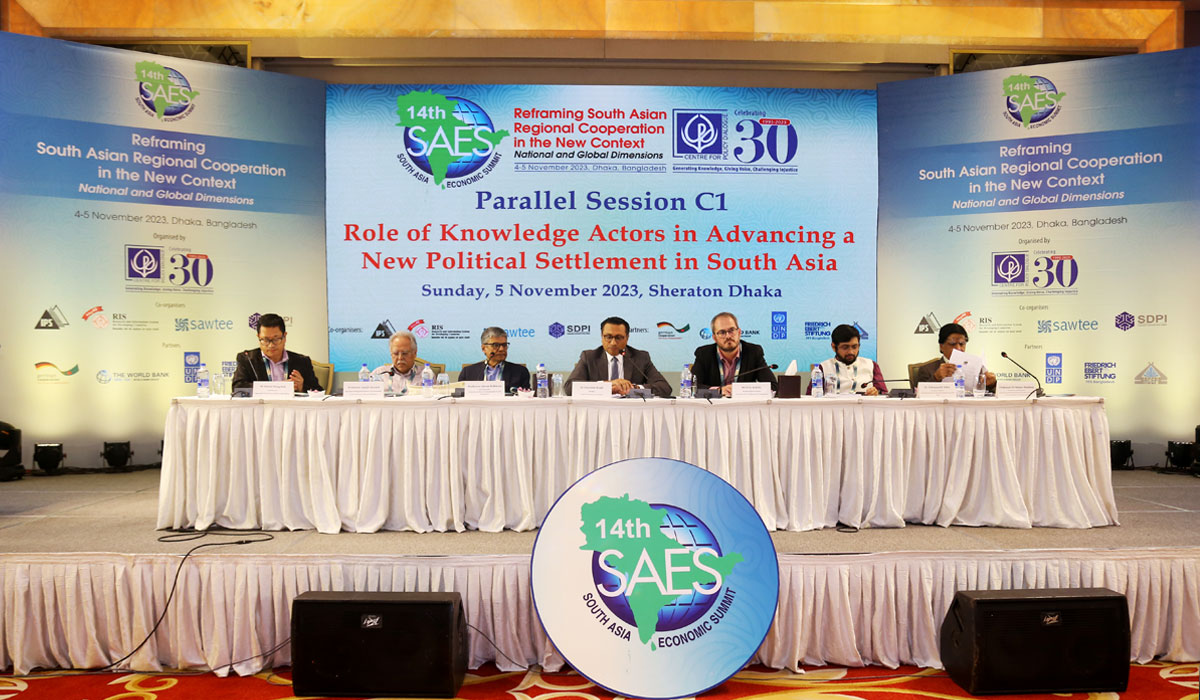
There is a longstanding tradition of collaboration among think tanks in South Asia, with coalitions forming since the 1980s. These institutions play crucial roles in promoting evidence-based policies, facilitating open dialogues, and complementing official processes to monitor progress. Despite their valuable contributions, think tanks encounter challenges such as sustainability, funding shortages, and restricted civic space.
To safeguard their independence, it is imperative for think tanks to remain objective and neutral. Establishing connections among think tanks is vital for knowledge transfer in all directions, fostering regional cooperation. Joint research studies across borders are commendable for leveraging the network of think tanks. The advancement of political settlements relies on various knowledge actors, including think tanks.
Researchers should engage in country visits to establish networks and friendships, laying a strong foundation for cooperation. Knowledge actors, including universities and think tanks, should collaborate on generating new ideas, fellowships, and knowledge transfer initiatives, including student exchanges, across countries in the region.
These are some of the insights that emerged at the parallel session C1 of the Fourteenth South Asia Economic Summit (SAES XIV) titled ‘Role of knowledge actors in advancing a new political settlement in South Asia’ held on 5 November, 2023.
The Chair of the session, Dr Swarnim Wagle, Member Federal Parliament of Nepal, highlighted ‘The primary role of think tanks is to bridge the gap in knowledge generation between security providers, such as the government, and development organisations, like CSOs and think tanks’.
Professor Sanjib Baruah, Andy Matsui Distinguished Professor of the Humanities, Asian University for Women, cautioned against conflating heritage with history. He emphasised that heritage is shaped by people based on their history to evoke a positive sense of identity and well-being.
‘The government is overlooking a significant opportunity, as a group of intelligent individuals remains uninvolved in the public sector and is not contributing to policymaking’ cautioned the Vice Chancellor of University of Liberal Arts Bangladesh (ULAB), Professor Imran Rahman.
Mr Rinzin Wangchuk, Member, Journalists Association of Bhutan, said that knowledge actors are the catalysts in shaping new political settlements in South-Asia.
‘Localising SDGs represents a novel approach, and it is essential to establish medium-term objectives. Evidence-based research is crucial for scaling up development efforts’, underscored the Associate Professor of Research and Information System for Developing Countries (RIS), India, Dr Sabyasachi Saha.
Mr Felix Kolbitz, Resident Representative Friedrich-Ebert-Stiftung (FES), Bangladesh, suggested ‘To foster cooperation, we require exchanges. The interchange of researchers between different countries can cultivate friendships and expand networks’.
High-level policymakers, political leaders, academics, development practitioners, civil society activists from Bangladesh and the South Asian region attended the session and shared their valuable insights.
- Concept Note
- Programme
- Presentations
– Cooperation in Public Health – Rudra Suwal
– Cross-Border Labour Flows in South Asia: An Overview – Raghav Chakravarthy
– Macroeconomic Policy Choices in South Asia: Ideas and Choices – Dr. Priyadarshi Dash
– Role of Knowledge Actors in Advancing a New Political Settlement in South Asia – Sanjib Baruah
– Towards an Integrated Energy Grid – Dr. Shankar Shrestha - Session Guidelines
– Plenary Session 1 | Plenary Session 2 | Plenary Session 3
– Parallel Session A1 | Parallel Session A2 | Parallel Session A3
– Parallel Session B1 | Parallel Session B2 | Parallel Session B3
– Parallel Session C1 | Parallel Session C2 | Parallel Session C3 - Speeches
– Welcome Remarks by Dr Fahmida Khatun
– Speech by Dr. Nandalal Weerasinghe
– Speech by Dr Paras Kharel
– Speech by Dr Yuba Raj Khatiwada
– Conference Summary by Dr Khondaker Golam Moazzem - Webpost
Inaugural Session | Plenary Session 1 | Parallel Session A1 | Parallel Session A2 | Parallel Session A3 | Plenary Session 2 | Plenary Session 3 | Parallel Session B1 | Parallel Session B2 | Parallel Session B3 | Parallel Session C1 |Parallel Session C2 | Parallel Session C3 | Closing Session - Photos of the Conference
Inaugural Session | Plenary Session 1 | Parallel Session A1 | Parallel Session A2 | Parallel Session A3 | Plenary Session 2 | Plenary Session 3 | Parallel Session B1 | Parallel Session B2 | Parallel Session B3 | Parallel Session C1 | Parallel Session C2 | Parallel Session C3 | Closing Session | Cultural Programme - Videos of the Conference
Inaugural Session | Plenary Session 1 | Parallel Session A1 | Parallel Session A2 | Parallel Session A3 | Plenary Session 2 | Plenary Session 3 | Parallel Session B1 | Parallel Session B2 | Parallel Session B3 | Parallel Session C1 | Parallel Session C2 | Parallel Session C3 | Closing Session | Cultural Programme


